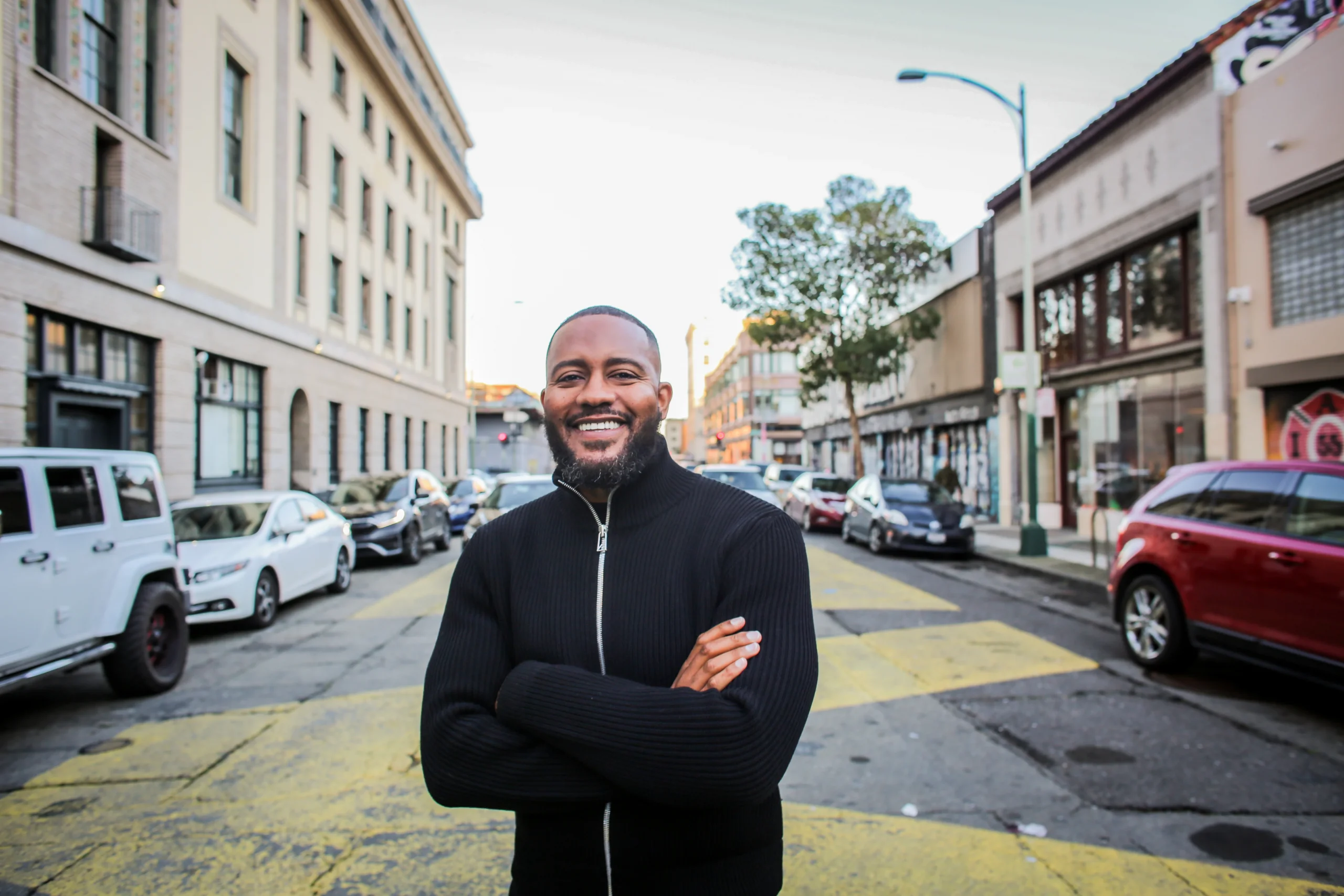Brandon D. Anderson
Founder / Executive Director

“Our systems must reflect our community’s needs, be built on trust and provide the appropriate response to conflict, instead of being met with violence.”
Leading Edge Vision:
Brandon’s vision is to disrupt the 911 system and end aggressive police response by building an alternative dispatching system that meets people’s needs during acute crises without ever involving police.
What is your vision for your community? For California?
My vision is to live in a world where our conflict is approached with care, not with punishment. Our systems must reflect our community’s needs, be built on trust and provide the appropriate response to our conflict, instead of being met with violence. We need a system and consortium of care that remedies the conflict we are up against – a conflict that is unfortunately created by the state itself. By the end of 2030, I hope to build a robust crisis and long-term care model that can live up to the care our communities need.
Can you share a story, either personal or from a directly impacted person, that exemplifies the problem you are trying to solve?
A story that comes to mind is from a teacher who talked about her experience in needing to hand-off conflict resolution to police officers in her classroom. She told me that children are being forced to grow up to negotiate through violence. There are 14 million students who go to school today who don’t have a psychiatrist or social worker, but they have a cop in their classroom. What we know about police is that they are armed and trained to enact violence and control for the sake of arrest. Kids are being forced to find ways to approach conflict and to solve their problems not with the support of a teacher or counselor, but by cops.
The way we negotiate conflict with partners, strangers or friends mirrors our larger system of conflict. Where we should be learning and teaching how to negotiate conflict with care, we’re conditioning kids to resort to violence by handing that work to a cop. These people are not trained to care for us. They are trained to shoot us.
What progress have you seen thus far in your work?
Since 2017, Raheem has been the only independent service for reporting police in the United States. We created and managed an online reporting service that allowed nearly 2,700 people across more than 200 cities to anonymously report about their interactions with police. We also made it easier for victims to access free legal support, file complaints, and find people in their community organizing against police violence. And we used these reports to advocate for policies and narrative change that center the lived experiences of people most harmed by police.
We recently conducted a study in Oakland in which residents wanted to see a change in the use of force policy. This research told us that most Oaklanders wanted to see reduction in police activity and increase investment into systems of care. This mirrored what we heard across more than 250 cities from the communities most impacted by police terrors: police reform will not end police terror; for the safety of all people, a world without police is necessary; and, in a world without police, people will need new ways to ask for help. With these lessons in mind, we decided to stop focusing on reform, and committed ourselves to helping people reimagine safety without police, and build out the organizational infrastructure and model to make that happen.
What remains to be done?
Our technology is robust, but it is only as good as the people using it. Raheem began developing the PATCH software system as the backbone of an alternative dispatching system, but, in speaking with partner organizations, we’ve come to understand that software alone is not enough to meet the needs of those who are routinely failed or harmed by police and the organizations that serve them. If we are going to have a central distributor of care, we need to support more organizations – like mobile crisis teams, abolitionist organizations and public health agencies – to grow. And, to build the consortium of teams to respond with the care we need and that the police should not be doing, we also need the funding pipeline so folks can sustain this work.
How will the Leading Edge Fund fellowship help? What makes you excited to be part of this year’s formation?
What this fellowship is doing is giving me room to breathe. To be funded for this work while being supported by staff, a team of contractors, and past and current fellows in the discovery and envisioning of a world without police is the greatest infrastructure you can give me. This fellowship gives me room to think outside of my everyday crisis. This is where my dreams are sparked – it is in the in between these crises that I have found my greatest strength.
Who needs to hear your story and what is your call to action for them?
The strongest ask is for individuals and organizations to join us and to understand what this work is all about. If you’re interested in moving throughout the world without cops and developing a network organization that can meet the needs of our communities, find out more about our work and join us.